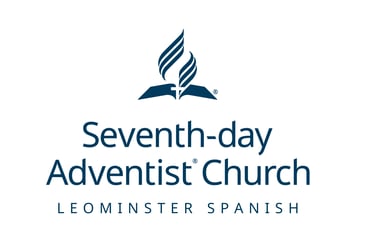IWLTK S2 EP2
This blog explores four heartfelt spiritual questions—about prayer in marriage, natural disasters, understanding the Bible, and God’s purpose for Earth—through the lens of Scripture and Adventist belief. It encourages readers to seek God with trust, knowing He is present in every step of their journey.
Bound Together
4/11/20253 min read
Introduction
Life brings deep questions—especially when it comes to God, faith, and understanding the Bible. Maybe you’ve wrestled with some of these yourself: Is it really necessary to pray with my spouse? Why are there so many floods today if God promised not to flood the world again? Why is the Bible sometimes hard to understand? And what is God’s true purpose for this earth?
If so, you’re not alone. These are real, heartfelt questions. Let’s explore them together through the lens of the Bible and the teachings of the Seventh-day Adventist Church.
1. How important is it to pray with my spouse?
Prayer is one of the most powerful ways to build spiritual intimacy in a marriage. When a husband and wife pray together, they invite God into their relationship—not just as individuals, but as a united couple.
Ecclesiastes 4:12 reminds us: "Though one may be overpowered, two can defend themselves. A cord of three strands is not quickly broken." That third strand is God. Praying together builds trust, opens communication, and invites God’s guidance and peace into your home.
In the Adventist perspective, marriage is a sacred covenant. When spouses pray together, they are not just talking to God—they are aligning their hearts with His will. It strengthens not only your connection to each other but also your spiritual mission as a couple.
2. Why are there so many floods today if God promised He would never flood the world again after Noah's ark?
It’s true—God did promise never to destroy the whole world with a flood again. Genesis 9:11 says, “Never again will all life be destroyed by the waters of a flood; never again will there be a flood to destroy the earth.”
But this doesn’t mean that local or regional floods would never occur. Natural disasters, including floods, are part of the brokenness of our current world—a result of sin’s impact on nature (Romans 8:22). The promise God made was about a global flood, like the one in Noah’s time, not about all flooding everywhere.
From a Seventh-day Adventist view, these increasing disasters are also signs that we are living in the last days (see Matthew 24:7). But God is not absent. He is with us in every storm, and He calls us to be a light in times of crisis, helping others and pointing them to the hope found in Christ.
3. I struggle to understand the Bible sometimes when I read it. What can I do about that?
You're not alone—many people struggle with understanding the Bible, especially at first. But God desires that we grow in our knowledge of Him through His Word. Here are a few practical steps from an Adventist perspective:
- Pray before you read – Ask the Holy Spirit to open your mind and guide you. John 16:13 says the Spirit “will guide you into all truth.”
- Use a study Bible or Bible guides – The Adventist Church offers excellent resources like The Amazing Facts Study Guides or Sabbath School Quarterlies that break things down clearly.
- Study with others – Join a Bible study group, ask a trusted spiritual mentor, or attend a Sabbath School class.
- Be patient with the process – Isaiah 28:10 reminds us that understanding comes "precept upon precept, line upon line." Don’t rush—God will teach you in His time.
Remember, the goal isn’t just head knowledge, but heart transformation. Every moment spent in the Bible is a step closer to knowing Jesus.
4. What is God’s purpose for this earth?
God’s original plan for Earth was for it to be a place of peace, joy, love, and eternal connection with Him. Genesis describes a perfect world—no pain, no death, no separation from God.
Though sin has distorted that plan, God’s purpose hasn’t changed. Revelation 21:1 speaks of a “new heaven and a new earth.” The Seventh-day Adventist Church believes in the literal return of Jesus, who will restore this earth to its original beauty and perfection. This includes the end of suffering, the resurrection of the righteous, and eternal life in the presence of God.
God’s purpose is for us to live in relationship with Him and with each other—forever. And that purpose begins now, as we live lives of love, service, and hope, pointing others to His soon return.
Conclusion
Your questions matter. They reflect a heart that’s seeking truth—and God honors that. Whether it’s through prayer with your spouse, understanding the Bible, or wrestling with natural disasters, God is not silent. He speaks through His Word, His people, and His Spirit.
Keep asking. Keep seeking. And know that God is always drawing you closer.



